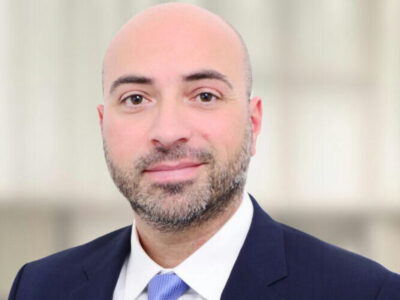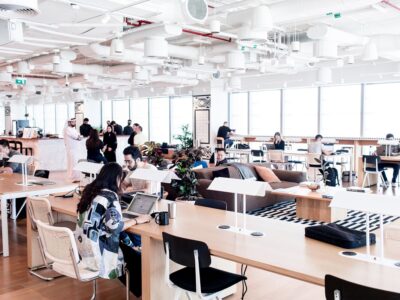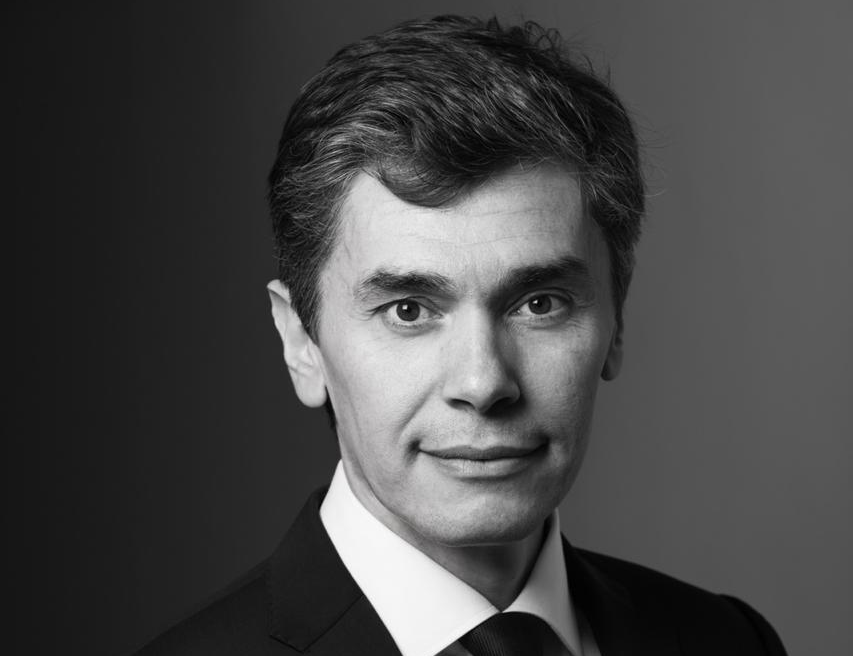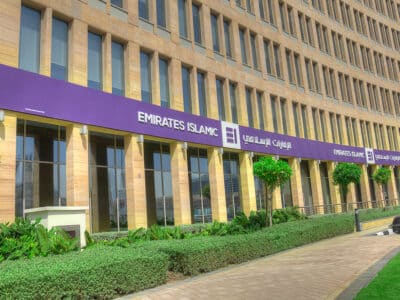It’s a bold claim by a company to say it has been ‘powering a revolution’, but in a 12 months shaped by digital transformation, Sitecore’s CEO believes they have been driving just that.
Founded in Denmark in 2001, it has enjoyed a strong presence in the Middle East since 2017, helping marketing teams own the experiences they create for their customers, constituents and supporters. It’s clear, though, that this has been a year in which their services can lay claim to powering a revolution.
“2020 will have a prominent place in the narrative about transformation when we’re looking back,” CEO Steve Tzikakis tells Arabian Business. “Five years from now, ten years from now, everybody will be talking about the year of the pandemic and that’s going to be the year that changed our business lives.
“This is the year where people have reconsidered how they do business, the need to travel, the need to do physical meetings and also people have recoded their priorities. What’s more important, travelling days upon end for business or finding the right equilibrium where you can spend a little bit of time with your family, with your loved ones, with your friends?”
Year zero
Tzikakis ranks 2020 alongside other seismic events of the last half century, such as the oil crisis in the 1970s or the 2008 financial crash. Not only did it have an immediate and fundamental impact on people’s lives, there were both opportunities and long-term behaviour changes that came with them. And he sees that today in the digital world with Covid-19.
“Every technology shift is accompanied by a mind shift and traditionally what we have seen, whether it was the oil crisis in the early 70s, or dotcom, or Lehman Brothers, immediately after or during that crisis there were always new start-ups and new things coming, especially in the technology area,” he says.
“Immediately after Lehman Brothers, we saw the likes of Uber emerging out of that crisis. During the pandemic everyone knew who Zoom is among many other things that came into our lives.”
Spurred on through necessity, given the coronavirus-enforced lockdowns and curfews across the region, the GCC ecommerce market is expected to reach $19.7 billion by the end of this year, according to a panel of experts at the virtual roundtable on Intelligent Orchestration of Retail Experience in September.
It was revealed that Saudi Arabia is expected to claim the majority of the total ($8.3bn), followed by the UAE, with $7.5bn.
Despite these sizeable figures, Tzikakis stresses that this year has also taught the business community that shifting to ecommerce alone is simply not enough in the ‘new normal’ in which we now live.
Building the revolution
Tzikakis, who was appointed CEO of Sitecore in September, is a 13-year veteran of global enterprise application software company SAP. He spent the last five years as president of SAP’s South Europe, Middle East, and Africa region, spanning more than 43,000 customers, 19,000 partners, 4,700 employees, and 85 nationalities.
On joining Sitecore, he said he wanted to “make human connections through digital experiences to increase customer engagement”.
He explains: “We first spoke about bringing human connections into digital experiences two years ago. This is probably the most important message in the market. People don’t want just digital capability, they need a little bit of emotion into what’s happening on ecommerce. There has to be some understanding, some intelligence and some emotion, otherwise consumers get lost, consumers get bored.
“When you’re in the physical world, you can be very targeted and have a little bit of a personalised service when you walk into a fashion store, but you’re limited to what you can reach within your own radius. On internet and digital platforms, on the other hand, you have an untapped opportunity of who you can shop from. But what’s missing is the personalisation, the white glove treatment. It shouldn’t be just about what happens when you click the ‘buy’ button.”

What Sitecore does, he explains, is to use artificial intelligence, machine learning and, via the gradual proliferation of 5G and the deployment of IoT technologies, to try to deliver emotions into e-commerce experiences.
Sitecore is now the market leader in driving superior digital experiences for many of the largest and most respected brands in healthcare, financial services, retail, automotive and manufacturing. Its customers include more than a third of the Fortune 100 and nearly half of the S&P Global 100.
Leading companies include American Express, ASOS, Carnival Cruise Lines, Kimberly-Clark, L’Oréal, and Volvo Cars, as well as Kerzner International and Emirates NBD.
“What the pandemic brought as an opportunity for businesses, is the necessity to move fast. In particular, you look at the Middle East and it’s an amazing market because there’s countries out there like the UAE or Saudi Arabia, Egypt, Qatar, many great markets, where governments are helping and pushing businesses to innovate and digitalise,” says Tzikakis.
“We have some amazing examples of customers in the Middle East and, in particular the Middle East. We have the two largest oil companies in the Middle East, the three largest airlines in the Middle East, the most innovative utility company, the largest automotive dealer, the largest retailer. All of these are using our personalisation platform,” he adds.
It is no wonder then that, when he talks of the Middle East region, Tzikakis describes it as the global superpower’s home market, with a bold growth plan, involving “hundreds of millions of dirhams” and including the opening of new offices, the launch of an innovation lab in Dubai as well as local clouds in the UAE and Saudi Arabia.
The move will add “a few hundred people” to the company’s staff in the region through client-facing roles, solution engineers, support architects, client monitors and senior advisors.
He says: “When I look at the plans we have, for instance bringing artificial intelligence into our platform, because that increases productivity, it increases customer insights, it increases omni-channel and puts everything into the cloud, what better place to do this than the Middle East?
“The governments are pushing for similar initiatives, you have a lot of great talent out there. Look at the initiative about the one million Arab coders, and couple that with the infrastructure readiness, it’s the perfect place.
“We’re moving very fast in the Middle East. It will be a co-innovation hub, where we’re actually going to be working with clients to develop the next generation of innovative tools that will help both them and us expand our leadership in the market.”








